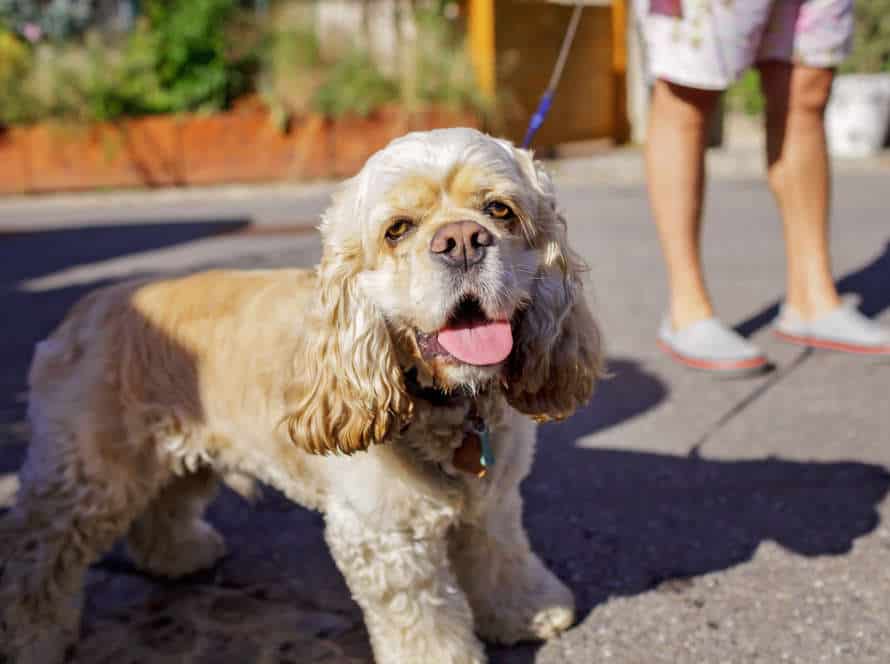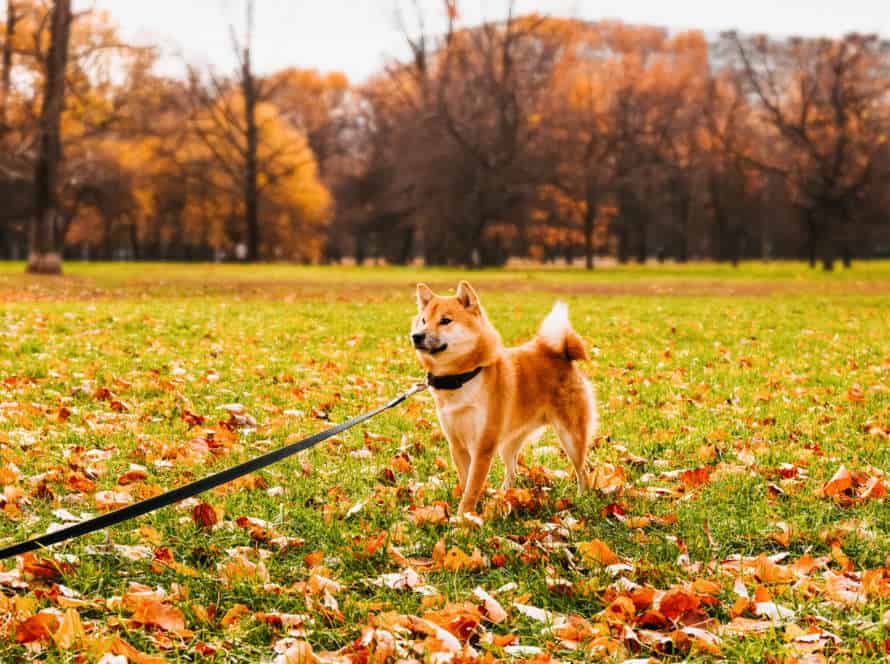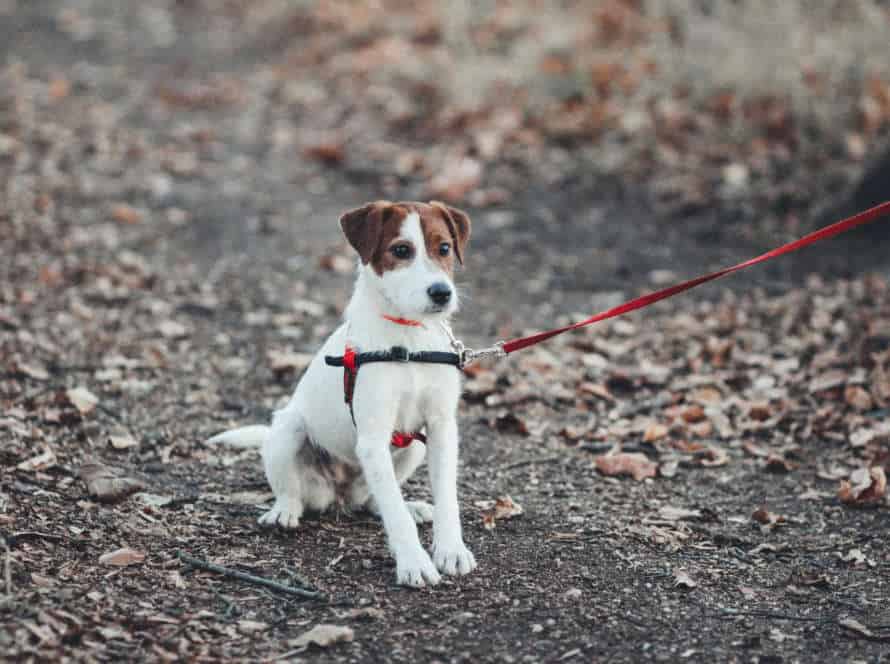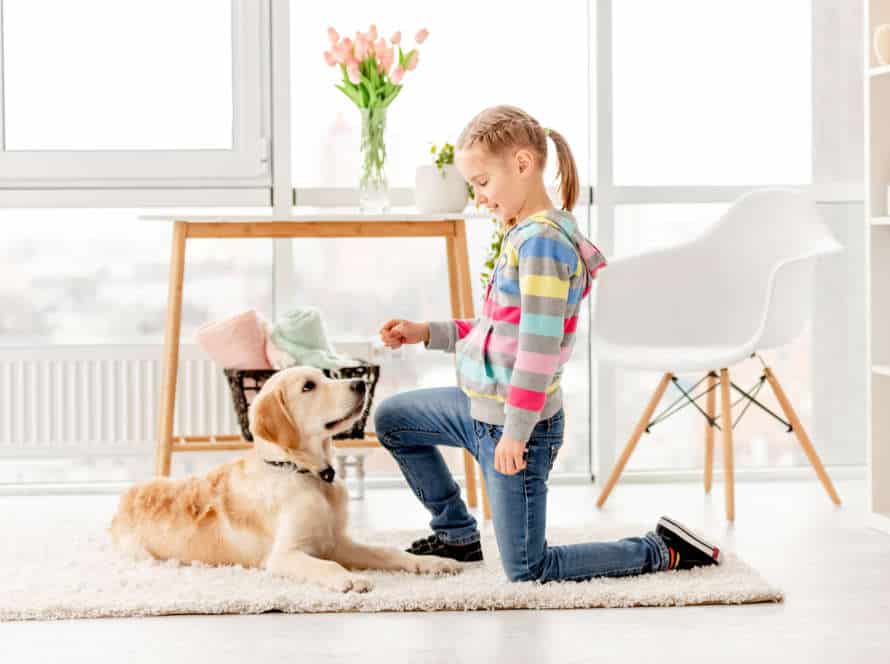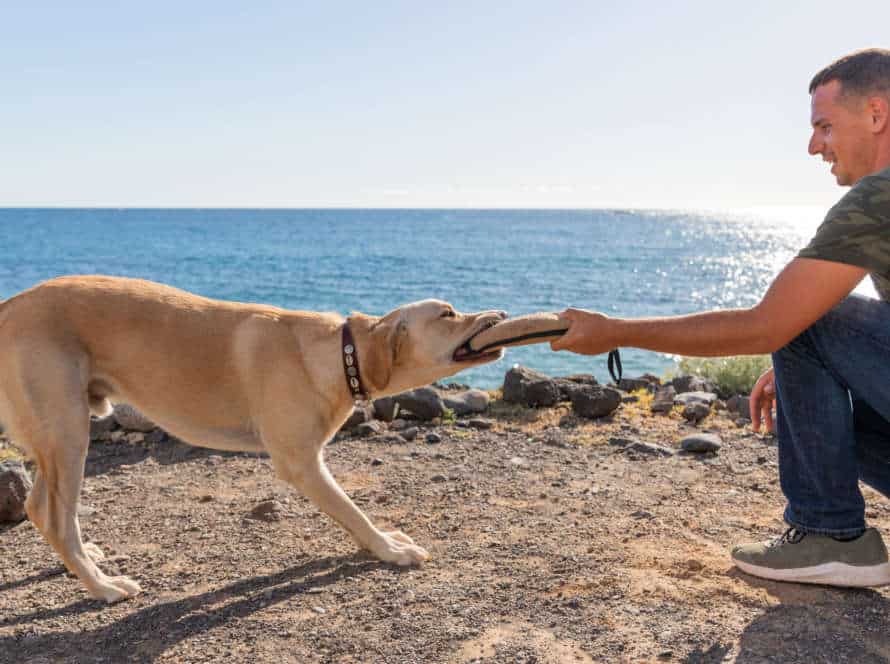The Unique Challenges of House Training an Adult Dog
Training an adult dog can be tricky, due to factors like age, prior training, and temperament. Here are some of the usual issues:
- Breaking bad habits. Perhaps they have been poorly trained before.
- Health issues. Urinary incontinence can make it hard.
- Anxiety or fear. Stress or fear can stop them learning.
- Training techniques. You may have to change yours, if they’re not responding.
Patience and consistency are key when house training an adult dog, plus lots of love and positive reinforcement.
Understanding Adult Dog Behavior
House training an adult dog can be tough. Young puppies are not the same as adult dogs. Established habits and stubbornness can make it harder. Furthermore, behavior is different depending on the breed and their history. Let’s look at the special difficulties of house training an adult pooch.
Causes of House-Soiling in Adult Dogs
House-soiling in adult dogs can have multiple causes. Age or changes in routine or surroundings could be factors. Here are some common ones:
- Medical Problems: Urinary tract infections, bladder stones, gastrointestinal issues, and more can make a dog lose control and soil.
- Behavioral Problems: Stress, fear, boredom, or separation anxiety can lead to house-soiling.
- Training Issues: Inconsistent or confusing rules, punishment-based training, or lack of training can create anxiety and confusion.
- Environmental Factors: Changes in living arrangements, routine, or surroundings can also cause house-soiling.
Understanding these unique challenges and addressing the causes can help resolve the issue and prevent future episodes.
The Importance of Positive Reinforcement Training
Positive reinforcement training is a must for house training adult dogs who have special behavior issues. Unlike punishment-based techniques, positive reinforcement focuses on rewarding desired behaviors. Here are the reasons why it’s important:
- Building trust and better behavior: Positive methods make adult dogs feel safer, making them less likely to do bad things or be anxious.
- Creating positive connections: Giving treats, compliments or toys when they do something good makes adult dogs link good stuff with good actions.
- Teaching: Breaking difficult tasks into smaller steps helps adult dogs learn how to be house trained.
- Making healthy bonds: Positive reinforcement helps create a loving, trusting relationship between an adult dog and its owner.
Pro tip: Be consistent and patient when house training adult dogs. Reward positive behavior regularly for the best results.
Recognizing Signals and Patterns in Your Dog’s Behavior
Gaining insight into your pup’s behavior is crucial for comprehending their feelings and necessities. When training an adult dog at home, issues may come up due to their past experiences.
Keep an eye out for the signs and patterns they show, like sniffing or going in circles before relieving themselves. This can help you guess when accidents may happen and prevent them.
Also, give your pooch lots of chances to go out and reward them when they do. Patience and consistency are essential when training an adult dog since it could take longer for them to forget old habits and get used to new ones.
By understanding your adult dog’s behavior and being patient, affectionate and guiding them, you can tackle the specific issues of house training and strengthen your bond.
Setting Up a Consistent Routine for House-Training
House-training an adult dog can be tricky, but with a good routine and lots of patience, it is totally possible! Setting up a consistent daily routine is key. That includes fixed times for meals, bathroom breaks, and playtime.
Let’s look more closely at the steps and ideas for making a successful house-training routine!
- Set up a designated potty area outside and ensure that the dog knows the location.
- Bring the dog outside first thing in the morning, after meals, and before bedtime.
- When the dog goes potty outside, give praise and treats as positive reinforcement.
- If the dog has an accident inside the house, clean it up immediately and do not punish the dog.
- Try crate training to help the dog learn bladder control and avoid accidents.
- Stick to a consistent routine and be patient! It can take some time for adult dogs to learn new habits.
Creating a Designated Bathroom Area
Create a special bathroom spot for your adult dog. Here are some tips:
- Pick a spot outside that is easy for them to get to.
- Say a command word, like “go potty” when you take them there.
- Reward them with treats or compliments when they use the area.
- Be consistent in taking them there, like after they eat or wake up.
This house-training process is tricky, but having a designated area and routine can help make it a success!
Scheduling Feeding Time to Establish Regular Bathroom Breaks
Set up a consistent routine for house-training your adult dog. Feed them at the same time each day. Monitor their feeding times. Take them for a walk within 15-20 minutes after eating. Give water after the walk. Notice their bathroom signals, like scratching the door or circling. Be consistent and use positive reinforcement. Reward them with treats when they go potty outside. That’s how your adult dog will adjust to their new routine.
Crate Training as a House-Training Tool
Crate training is a great way to create a consistent routine for toilet-training your pup or adult pooch. Here’s some advice to get you started:
- Choose a crate that’s the right size for your dog. Make sure it’s big enough for them to stand, turn around, and lie down comfortably.
- Introduce your pup to the crate gradually and make it a positive experience by putting treats and toys inside.
- Start off with the crate door open and let your pup explore it at their own pace.
- Once they’re comfortable, increase the length of time they stay in the crate, starting with short intervals and building up to longer ones.
- Always use positive reinforcement such as praise and treats to encourage good behavior. Never use the crate as a form of punishment.
With patience and consistency, crate training can be a useful tool to help house-train your pup and address any behavioral issues.
Problem-Solving Techniques for House Training Challenges
House training adult dogs can be tricky! They’re not as malleable as puppies and may have established habits. It can be a challenge to change them. Here’s some techniques to help with the unique house training process of adult dogs.
Surfaces and Textures Preferences
Adult dogs may face house-training challenges due to their specific surface and texture preferences. This may lead to accidents in the house or difficulty in relieving themselves.
To overcome this, observe where your dog prefers to eliminate and the surfaces and textures they avoid.
- Introduce and encourage your dog to eliminate on different surfaces and textures (grass, concrete, wood chips etc.).
- Reward and praise your pup when they use the desired surface or texture.
- Be consistent with feeding schedules and take your pup outside at the same times each day.
With time, they will learn to prefer the desired surface and texture when it’s time to go potty.
Dealing with Separation Anxiety
Dealing with separation anxiety for adult dogs can be tough. Here’s some help!
- Create a routine
- Leave slowly and take short trips first
- Crate train your pup
- Exercise your dog before leaving them
- Give interactive toys to distract them from anxiety
- Seek professional help if needed
Creating a routine can make your dog feel more secure and settled. Try to stick to the same schedule every day, including feeding times, walks, and playtime.
Start by leaving for just a few minutes and gradually increase the time. This can help your dog feel more comfortable and less anxious when you’re away.
Crate training can make your dog feel safe and comfy while you’re away. Make sure to provide plenty of bedding and toys, and never use the crate as punishment.
A tired dog is a relaxed dog. Take your pup for a walk or play a game of fetch before you leave to help them unwind.
Toys that require your pup to work for treats or toys can be a great distraction from anxiety. Puzzle feeders or toys that can be stuffed with treats are good options.
If your dog’s separation anxiety is severe, don’t hesitate to seek help from a professional dog trainer or veterinarian. They can provide additional guidance and support.
Persistent House-Soiling Despite Training and Consistency
Is your pup still having issues house-soiling even after training? It could be because of a bigger issue that needs dealing with. Here’s what to do:
- Check their health – maybe an illness is causing the problem. Take your pup to the vet.
- Change your training techniques – research other methods or ask a pro for help.
- Look into anxiety and stress – identify the triggers and try to reduce them.
- Increase outdoor breaks – especially for older pups or those with medical issues.
- Stay patient – retraining an adult dog takes time. Plus, use positive reinforcement – treats and praise will help!
Additional Tips for Successful House Training
Adult dog house training can be tough – they already have their habits! But it’s doable. Dedication, consistency, and the correct tools are key. Get your adult pup up to speed with our tips in this article. Success is just around the corner!
Utilizing Natural and Pheromone-Based Products
House training adult dogs can be made easier by using natural and pheromone-based products. These products can help with ingrained habits or behavioural issues.
Products such as potty pads, natural enzyme cleaners and pheromone sprays/diffusers are great options.
- Potty pads offer an indoor bathroom for dogs.
- Natural enzyme cleaners break down and eliminate odours that could attract dogs to certain areas in a house.
- Pheromone sprays/diffusers mimic calming smells that dogs release when they mark their territory. This helps reduce anxiety and encourages proper elimination habits.
Using these products can make house training easier and successful for you and your furry friend.
Incorporating Exercise into Your Dog’s Routine
Get your pup active! Exercise is vital for your pup’s health and happiness. Here are some tips to help you:
- Take it slow and gradually increase the intensity of their exercise, to prevent harm or fatigue.
- Pick activities that fit your pup’s breed, size and energy level. For instance, short-nosed breeds like bulldogs may not be suited for vigorous activities like running, while bigger breeds need more space to play.
- Vary your pup’s exercise routine to keep them stimulated and interested. Try walking, running, swimming, or fetching.
- Think about the climate and time of day before going on your workout. Dogs are sensitive to extreme temperatures, and may need to work out during cooler parts of the day.
Exercising your pup will help reduce the risk of obesity, boost their overall health, and deepen the bond between you and your furry pal.
Minimizing Accidents and Correcting Behaviors without Punishment
Training is a great way to stop adult dogs from doing bad things – without punishing them. Here are some helpful tips to reduce accidents and undesirable behaviors:
- Prevent it: Keep an eye on your pup, or confine them to a small space when you can’t monitor them. That way, bad behavior will be less likely.
- Redirect: If your dog is chewing on something they shouldn’t, distract them with a toy they can chew on. This rewards them for good behavior, and encourages the right kind of chewing.
- Reward: Give your dog treats when they do the right thing, like sitting, staying, and going outside to do their business. This will make their behavior better over time – much better than punishment.
- Be consistent: Have a set schedule for feeding, playing and going to the bathroom. This will help your pup form good habits.
- Patience and understanding: Training an adult dog takes more time and effort than training a puppy. Be patient and give them clear instructions. Pro Tip: Dogs respond to love and kindness – not punishment. Encourage good behavior with positive reinforcement and consistency.
Frequently Asked Questions
1. Is it possible to house train an adult dog?
Yes, it is possible to house train an adult dog. Although it may take longer and more patience, adult dogs can learn new habits and behaviors through consistent training and reinforcement.
2. Why is house training an adult dog more challenging than a puppy?
Adult dogs may have already developed habits and behaviors that are difficult to change. They may also have previous experiences with bathroom habits that have reinforced negative behaviors.
3. Can crate training help with house training?
Yes, crate training can be an effective tool for house training adult dogs. When used correctly, a crate can provide a safe and comfortable space for a dog to rest in, while also discouraging them from going to the bathroom inside the house.
4. How can I encourage my adult dog to go to the bathroom outside?
Consistency is key when house training an adult dog. Try taking your dog out at the same times every day, using a specific word or phrase to encourage them to go to the bathroom, and rewarding them when they do so outside. Patience and positive reinforcement are also important in the process.
5. What should I do if my adult dog has accidents inside the house?
It’s important to remain calm and avoid punishing your dog for accidents inside the house, as they may not understand why they are being scolded. Instead, try to interrupt the behavior and take them outside immediately. Clean up any accidents thoroughly to avoid reinforcing negative behaviors.
6. How long does it take to fully house train an adult dog?
The length of time it takes to fully house train an adult dog varies depending on the individual dog and their previous experiences. With consistent training and reinforcement, some adult dogs can be fully house trained in a matter of weeks, while others may take several months.


